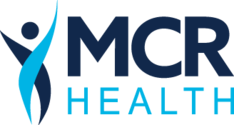Your heart is continuously working, which means it’s important to make sure your heart is functioning properly—no matter what your age is. There are many ways to maintain heart health, and with so much info on the web, it can be difficult to pinpoint what advice to listen to. Follow these tips to keep your heart health in check and in turn, help your entire body too!
EXERCISE
Adults should be exercising for at least 30 minutes a day, 5 times a week. Doing so will help keep your entire body healthy. It doesn’t have to be heavy workouts at the gym or long, fast runs. You can play outside with your kids, take the dog for a walk, kick around a soccer ball, or even go on walks during lunch break.
Keep in mind that it’s important to get your heart rate going a bit. You can use strength training, aerobics, flexibility or even stretching exercises to get your heart working daily. You can even break up your workouts throughout the day! If you only have time for a 15-minute walk at lunch, make sure to do something else when you get home too.
FOOD
Limit Bad Fat: saturated fat is bad for you and limiting your intake can cut your risk for heart issues in half. Eat meat and dairy that’s lower in fat and choose healthy fats like olive or canola oil instead of coconut or palm oil.
Say Goodbye to Salt: sodium can be detrimental to heart health. So, use less when cooking and limit the amount of processed foods you consume, such as potato chips or hotdogs.
Pick Up the Produce: it’s recommended that you eat 2.5 cups of vegetables and fruit every day. This will aid in lowering your risk for heart disease, stroke, and cancer. Eat a lot of greens and cut the processed foods. Fruits and vegetables are also high in nutrients, but low in calories, meaning they’re a good snack if you’re watching your weight too.
Good Grains: whole grains are great at lowering cholesterol and blood pressure and might help in preventing type 2 diabetes. Eat whole-wheat pasta, bread, and pancakes, corn tortillas, oatmeal, and brown or wild rice!
Limit Alcohol Intake: alcohol should only be consumed in moderation if you choose to do so. You should only have 1-2 drinks a day because drinking a lot of alcohol regularly can increase the risk of heart disease.
Cut Down on Sugar: consuming too much sugar can lead to high blood sugar levels, causing diabetes. Added sugar in drinks or foods like cookies, ice cream, pastries, and cereal can lead to heart disease. You should also stay away from added sugar because it can cause cavities and is usually in foods considered to be empty calories, meaning there is no nutritional value.
DON’T STRESS
Yup, stress can have detrimental effects on the heart. Because stress can hurt any part of the body, including the heart, be sure to make time throughout your day or week to relax. Your mind and body need to be able to unwind from the stressors of life and then recharge.
DENTAL HYGIENE
That’s right, dental health can positively affect heart health. Studies show that those with gum disease can have the same risk factors for heart disease. This is because the bacteria that cause gum disease can move into the bloodstream and cause the c-reactive protein to elevate, which leads to inflammation of the blood vessels.
MENTAL HEALTH
Mental health can have negative effects on the body. Those that have depression, are socially isolated, or do not have any support system from friends are family can be at greater risk for heart disease. Having a good social life and can help with overall body health.
HEALTHY WEIGHT
In America, weight gain and obesity tend to be growing problems as a result of our convenient, cheap, and large serving food options. Rapid weight gain and obesity can put people at high risk of heart attack, stroke, and high blood pressure.
DON’T SMOKE
Smoking creates a plethora of problems in itself: cancer, lung disease, and the chance of a heart attack. Tobacco can also cause infertility, pregnancy complications, and early menopause. Save yourself the harsh risks and don’t smoke. If you are a smoker and want to stop, use medicine, support groups, or counseling to help you quit effectively.
CHECKUPS
Regular checkups will help you make sure that your heart is in tip-top shape; and if it’s not, you and your doctor can hopefully catch issues early on and plan out next steps.
Blood pressure, blood sugar, cholesterol, and physical exams should happen based on how often your doctor suggests. High blood pressure and high cholesterol are especially important to monitor for because they typically don’t show any signs or symptoms.
RISKS TO HEART HEALTH
Heart Disease: coronary heart disease happens when the coronary arteries that take blood to the heart have become blocked or narrow. This is caused when cholesterol and fatty material (plaque) build up inside the arteries. How is plaque caused? When there is too much cholesterol and fat in the blood, high blood pressure, smoking, and too much sugar in the blood. When an artery is blocked by plaque, the blood flow to the heart is slowed down or cut off. This can lead to heart attacks.
KEEP YOUR HEART HEALTHY
At MCR Health, we are here for you so that your heart can function at it’s very best! We know that it can be difficult to make time for exercise, to plan out a healthy diet, or to maintain a healthy weight. We can help you create a plan for the ultimate heart health, as well as setting up regular checkups every year or few years, depending on your age and current physical health. Don’t hesitate to call us to make an appointment with one of our cardiologists so your heart can receive the care it needs!

